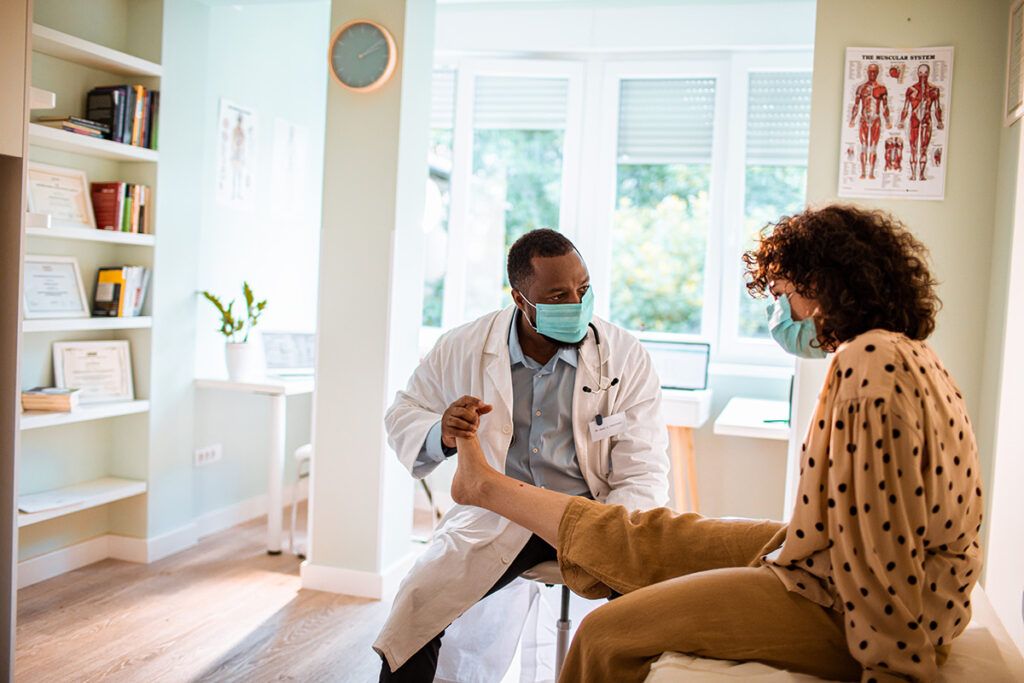Endometriosis is a chronic condition that can occur when endometrial-like tissue grows outside the uterus, resulting in pain and inflammation. The symptoms of a person with endometriosis may vary. However, leg pain is a common symptom of this condition.
Endometriosis-related leg pain typically feels like a radiating and warm pain. This may occur in only one leg or may spread to both. This pain may be more severe with age and may worsen before menstruation.
Why does it happen?

Endometriosis is a chronic condition that affects about 11% of females in the United States. It causes tissues similar to those in the uterus to grow outside the uterus. These growths are benign but can cause symptoms like swelling and back and leg pain.
Typically, the tissue sheds through the vagina during the menstrual period. However, it can also grow in body areas and get trapped. This can result in symptoms such as:
- painful periods
- spotting or bleeding between menstrual periods
- diarrhea
- constipation
- bloating
- nausea
- fatigue
- painful intercourse
- infertility
Other issues that endometriosis growths can cause may include:
- inflammation
- cyst formation
- blockage of fallopian tubes
- formation of scar tissue and adhesions
- intestines and bladder problems
Research from 2016 indicated that endometriosis growth might trap the sciatic and other nerves, potentially causing leg pain.
Inflammation of the sciatic nerve may cause pain in the buttocks that can radiate down the leg and the foot.
Treatment
Endometriosis is a chronic condition that has no cure. However, appropriate treatment can help improve its symptoms, including leg pain.
Home remedies
Various home remedies can help to alleviate leg pain from endometriosis. These methods can help reduce inflammation and pain levels. Examples include:
- placing a hot water bottle or heating pad against the inflamed area
- keeping your leg elevated
- getting plenty of rest
- exercising to reduce inflammation if you can do so
Over-the-counter (OTC) medication
A doctor may recommend taking pain medications alongside other drugs.
OTC pain relief, such as nonsteroidal anti-inflammatory drugs (NSAIDs), can help provide immediate and short-term relief. Examples include:
Prescription medication
If you are not trying to get pregnant, doctors may recommend taking hormonal birth control to:
- stop your periods
- reduce the frequency of your periods
- improve pain levels
If you are trying to get pregnant, doctors may recommend taking medications, such as gonadotropin-releasing hormone (GnRH) agonists. They can stop your body from producing the hormones responsible for the menstrual cycle and the development of endometrial growth.
Examples include:
- elagolix (Orilissa)
- leuprolide (Eligard)
- goserelin (Zoladex)
If you need help covering the cost of medications, the free Optum Perks Discount Card could help you save up to 80% on prescription drugs. Follow the links on drug names for savings on that medication, or search for a specific drug here.
